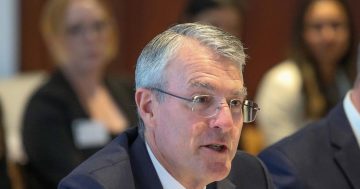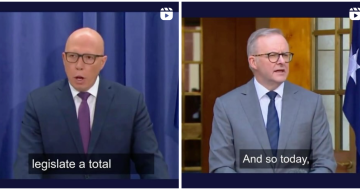
The Federal Government is taking further measures to stop online sexual violence. Photo: PeopleImages.
A suite of online measures to address children’s access to pornography and tackle extreme online misogyny will form part of this month’s federal budget initiatives.
A pilot program featuring age-assurance technology will be resourced to protect children from harmful content and age-restricted online services.
The pilot aims to identify and check the efficacy of available age-assurance products in protecting children from online harm.
Outcomes will inform the work of Australia’s eSafety Commissioner under the Online Safety Act, including through the development of industry codes or standards.
A review of the act has been initiated a year ahead of schedule to help ensure federal laws are keeping up with emerging online threats.
In addition, the Federal Government will introduce legislation to ban the creation and non-consensual distribution of deepfake pornography.
Anthony Albanese said digitally created and altered sexually explicit material is a damaging form of abuse against women and girls that can inflict deep harm on victims.
The reforms will make clear that creating and sharing sexually explicit material without consent, using technology like artificial intelligence, will be subject to serious criminal penalties.
“There should be zero tolerance for harmful content that glorifies violence against Australian women,” the Prime Minister said.
“Young adults should not be coached in disrespect or misogyny by online influencers.
“I understand parents want to protect their kids from harmful material online. Social platforms have important social responsibilities, and we need them to step up.
“Taken together, these reforms will give Australian families some of the tools they need to navigate the complexity of the digital world.”
A new phase of the Stop it at the Start campaign will launch in mid-June and run until May next year, with a specific focus on a counter-influencing campaign in online spaces where violent and misogynistic content thrives.
The campaign will directly challenge the material in the spaces in which it is being viewed.
It will raise awareness about the proliferation of misogynistic influencers and content aimed at young people and will encourage conversations within families about the damaging impact of the material.
Minister for Women Katy Gallagher said there was a growing concern around the role of violent online pornography in normalising gendered violence within the Australian community.
“Women and children have the right to be safe, and the use of online tools and spaces to perpetuate violence, misogyny and sexism must be stopped,” Senator Gallagher said.
“These important initiatives will tackle emerging threats to women and girls’ safety and participation online and will support young people, particularly young men, to have healthier and more positive relationships, attitudes and behaviours.”
The government says current research shows that 25 per cent of teenage boys in Australia look up to social media personalities who perpetuate harmful gender stereotypes.
In response to these concerns, classification reforms with states and territories will be tackled, with a view to examining options to reduce exposure to violent pornography.
Legislation will be brought forward to early August to overhaul the Privacy Act and outlaw the release of private information online with an intent to cause harm.
Attorney-General Mark Dreyfus said the practice, known as doxxing, was increasing and “deeply disturbing”.
The legislation will give all Australians who are experiencing domestic and family violence greater control and transparency over their personal information.
“The increasing use of online platforms to harm people, particularly women, through the malicious release of their personal information is deeply disturbing,” Mr Dreyfus said.
“Digitally created and altered sexually explicit material is a deeply distressing form of abuse against women and girls and can cause long-lasting harm.
“These reforms will make clear that those who seek to abuse or degrade women through doxxing, deepfakes, or by abusing their privacy online, will be subject to serious criminal penalties.”
Communications Minister Michelle Rowland stressed that digital platforms also have a responsibility to meet community standards because the reality is social media use is influencing Australian culture and social lives.
Original Article published by Chris Johnson on Riotact.







